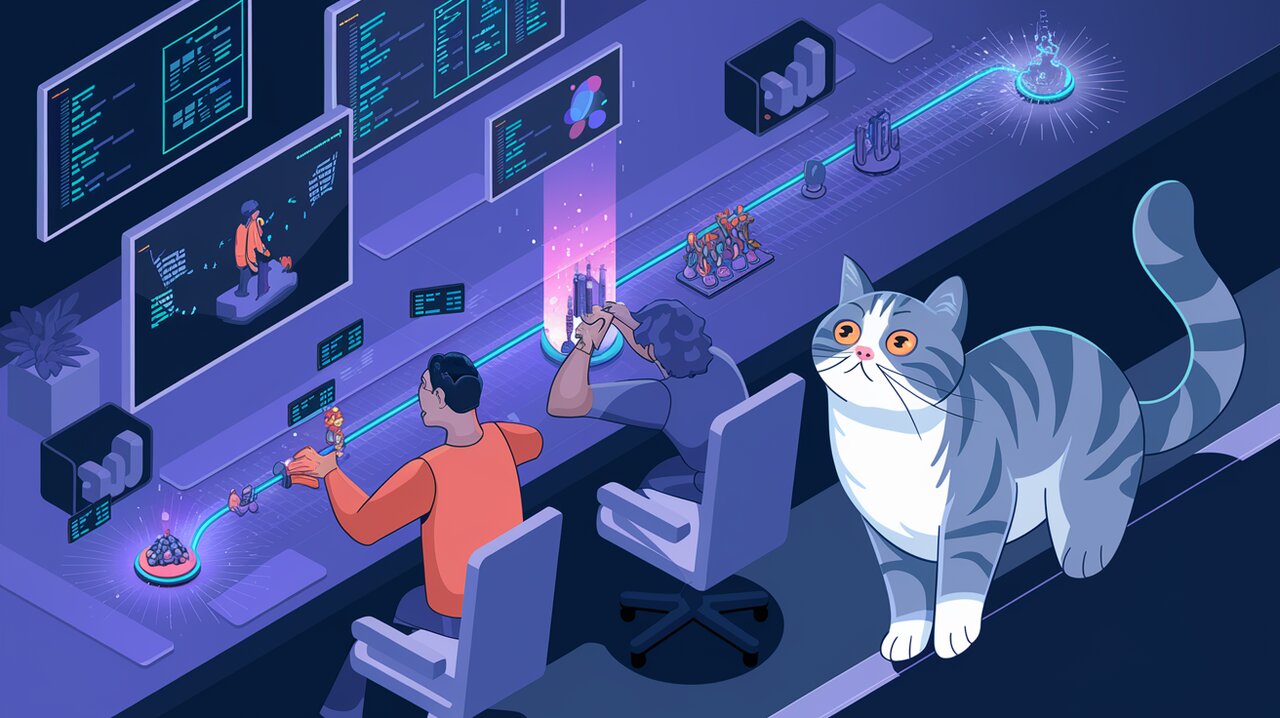
Crafting Time: Mastering React Chrono for Dynamic Timeline Experiences
React Chrono is a versatile and powerful timeline component designed for React applications. It offers developers a robust toolkit to create visually appealing and interactive timelines, perfect for showcasing historical events, project milestones, or any sequence of chronological data. With its rich feature set and customizable options, React Chrono enables the creation of engaging timeline experiences that can enhance storytelling and data visualization in web applications.
Features
React Chrono comes packed with an impressive array of features that set it apart:
- Multiple Layout Options: Create timelines in vertical, horizontal, or vertical-alternating layouts to suit various design needs.
- Rich Media Integration: Easily incorporate images, videos, and custom content into timeline items.
- Slideshow Functionality: Engage users with an auto-play feature that progresses through timeline events.
- Keyboard Navigation: Ensure accessibility with built-in keyboard controls for timeline navigation.
- Customizable Styling: Tailor the appearance of your timeline with extensive theming and color options.
- Nested Timelines: Implement complex, multi-level timelines to represent hierarchical data or sub-events.
- Custom Icons: Use your own icons to represent timeline points for a unique look.
- TypeScript Support: Benefit from type safety and improved developer experience with built-in TypeScript definitions.
Installation
To get started with React Chrono, you’ll need to install it in your React project. You can do this using npm or yarn:
npm install react-chrono
# or
yarn add react-chrono
Basic Usage
Let’s explore how to create a simple timeline using React Chrono:
Importing the Component
First, import the Chrono component and its styles in your React file:
import { Chrono } from "react-chrono";
import "react-chrono/dist/styles.css";
Creating Timeline Items
Next, define an array of items that will populate your timeline:
const items = [
{
title: "May 1940",
cardTitle: "Dunkirk",
cardSubtitle: "Men of the British Expeditionary Force (BEF) wade out to...",
cardDetailedText: "On 10 May 1940, Hitler began his long-awaited offensive in the west...",
media: {
type: "IMAGE",
source: {
url: "http://someurl/image.jpg"
}
}
},
// Add more items as needed
];
Each item in the array represents a point on the timeline. You can include various properties such as title, subtitle, detailed text, and media to create rich content for each event.
Rendering the Timeline
Now, you can render the Chrono component with your items:
const TimelineComponent = () => {
return (
<div style={{ width: "500px", height: "400px" }}>
<Chrono items={items} mode="VERTICAL" />
</div>
);
};
This basic setup will create a vertical timeline with the items you’ve defined. The mode prop determines the layout of the timeline, which can be “VERTICAL”, “HORIZONTAL”, or “VERTICAL_ALTERNATING”.
Advanced Usage
React Chrono offers several advanced features that allow for more complex and customized timelines:
Custom Content Rendering
You can render custom content within timeline cards by passing React elements as children to the Chrono component:
<Chrono mode="VERTICAL">
<div>
<h3>Custom Event Title</h3>
<p>This is a custom event description with rich content.</p>
<img src="/custom-image.jpg" alt="Custom event" />
</div>
{/* Add more custom elements */}
</Chrono>
This approach gives you full control over the content and styling of each timeline item.
Nested Timelines
Create hierarchical timelines by including a nested items array within a timeline item:
const items = [
{
title: "Parent Event",
cardTitle: "Main Milestone",
items: [
{
title: "Sub-event 1",
cardTitle: "Nested Milestone 1"
},
{
title: "Sub-event 2",
cardTitle: "Nested Milestone 2"
}
]
}
];
Nested timelines are particularly useful for representing complex historical events or project structures with multiple levels of detail.
Slideshow Mode
Enable automatic progression through timeline events with the slideshow mode:
<Chrono items={items} slideShow slideItemDuration={4500} />
This feature is great for creating engaging presentations or displays where you want the timeline to progress automatically.
Custom Timeline Point Icons
Personalize your timeline points with custom icons:
<Chrono items={items}>
<div className="chrono-icons">
<img src="/icon1.png" alt="Custom icon 1" />
<img src="/icon2.png" alt="Custom icon 2" />
{/* Add more icons as needed */}
</div>
</Chrono>
Custom icons can help to visually distinguish different types of events or add branding elements to your timeline.
Theme Customization
React Chrono allows for extensive theme customization to match your application’s design:
const customTheme = {
primary: "#ffd700",
secondary: "#ff4500",
cardBgColor: "#f5f5f5",
cardForeColor: "#333",
titleColor: "#000",
titleColorActive: "#0000ff"
};
<Chrono items={items} theme={customTheme} />
By defining a custom theme object, you can control various color aspects of the timeline, ensuring it integrates seamlessly with your application’s aesthetic.
Media Integration
Enhance your timeline with rich media content:
const items = [
{
title: "Video Event",
cardTitle: "Embedded Video",
media: {
type: "VIDEO",
source: {
url: "https://www.youtube.com/embed/dQw4w9WgXcQ"
}
}
},
{
title: "Image Event",
cardTitle: "High-Resolution Image",
media: {
type: "IMAGE",
source: {
url: "https://example.com/high-res-image.jpg"
}
}
}
];
By including media in your timeline items, you can create more immersive and informative timeline experiences.
Keyboard Navigation
React Chrono comes with built-in keyboard navigation, enhancing accessibility:
<Chrono items={items} enableOutline />
The enableOutline prop ensures that keyboard focus is visible, making it easier for users to navigate the timeline using keyboard controls.
Conclusion
React Chrono stands out as a powerful and flexible solution for creating interactive timelines in React applications. Its rich feature set, including multiple layout options, custom content rendering, and extensive customization capabilities, makes it an excellent choice for developers looking to implement engaging chronological visualizations.
By leveraging React Chrono’s advanced features such as nested timelines, slideshow functionality, and theme customization, developers can create unique and tailored timeline experiences that captivate users and effectively communicate chronological data. Whether you’re building a historical narrative, showcasing project milestones, or presenting a sequence of events, React Chrono provides the tools necessary to bring your timeline visions to life.
As you continue to explore and implement React Chrono in your projects, you’ll discover even more ways to enhance your timelines and create compelling user experiences. The library’s flexibility and robust feature set ensure that it can adapt to a wide range of use cases, making it a valuable addition to any React developer’s toolkit.
